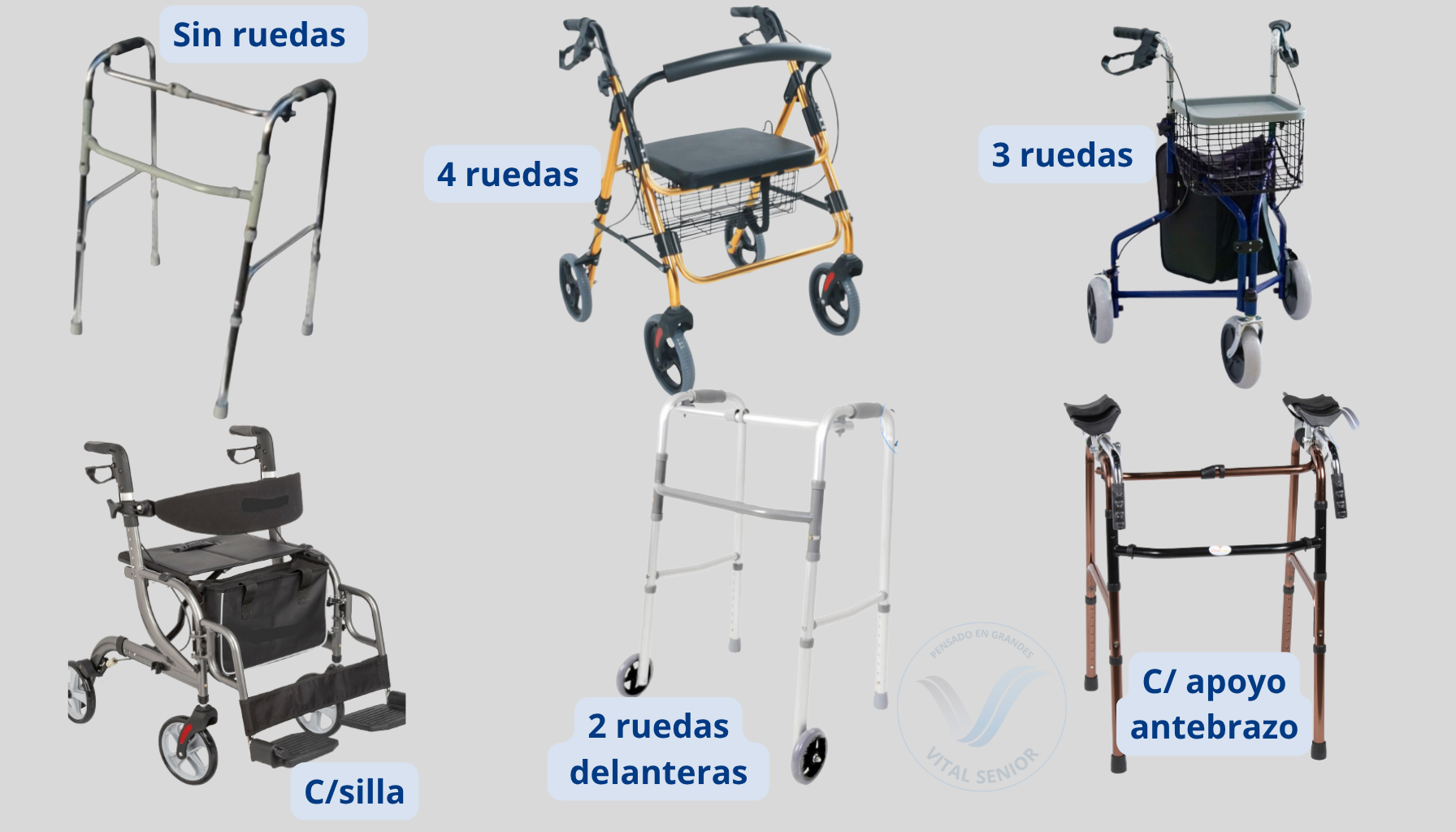Walkers for Seniors: The Ultimate Guide to Choosing the Right One (and Not Failing in the Attempt)

Walkers for Seniors: The Ultimate Guide to Choosing the Right One (and Not Failing in the Attempt)
By Epilef Zaíd | Vital Senior Blog
Has your loved one become less confident when walking? Are you worried about an unexpected fall?
A walker can be the key solution to regaining confidence, independence, and preventing accidents. In this comprehensive guide, we help you choose the best walker for seniors , with practical advice, a model comparison, and the factors that really matter.
- Download a free summary at the following link: Vital Senior Walkers Summary.pdf
✅ Why can choosing a walker improve a senior's life?
Walkers are not a sign of weakness, but a tool that promotes independence and quality of life . Using the right one can:
- Avoid falls and injuries.
- Relieve fatigue when walking.
- Offer support and stability.
- Allows you to rest at any time (models with seat).
- Promote user safety and self-esteem .
👉 A good walker doesn't just help you get around. It helps you live better.
🕒 When Is It Recommended to Use a Walker?
In general, we can notice when older people have some difficulty moving around , but it is always recommended to use these tools under the guidance and supervision of a geriatric professional or when:
- Balance or coordination problems appear.
- There is muscle or joint weakness.
- The person is recovering from surgery (such as hip or knee surgery).
- There is fear of walking alone, inside or outside the house.
- Physical rehabilitation is performed and additional support is needed.
💡 Expert advice: It's always a good idea to consult with a healthcare professional , such as a geriatrician, kinesiologist, or physical therapist, before purchasing a walker, especially if you have a pre-existing medical condition.
Now, let's review the types of walkers so you're better equipped to choose one for your senior .🔍 Types of Walkers for Seniors
1. Walker without wheels (4 legs)
2. Walker with 2 front wheels
It offers greater fluidity of movement without losing stability. It doesn't require lifting completely.✔️ Suitable for people with intermediate mobility.
3. Rollator with 4 wheels
4. 3-wheel rollator
5. Walker with transport chair
6. Walker with forearm support
Designed for people who cannot use their wrists or hands. The weight is supported by the forearms.✔️ Ideal for cases of severe arthritis or complex postoperative periods.
Below are reference images of each type of walker.

🛠️ How to Choose the Best Walker: 7 Key Factors
When purchasing a walker, these are the aspects you should consider:
1. Level of mobility
The lower the walking ability, the greater the support of the walker should be.
2. User height
The walker should be adapted to the height to avoid bad posture or back pain.
3. User weight
Aluminum models are lightweight; steel models can support more weight.
4. Usage environment
- For small interiors: narrow and maneuverable models.
- For outdoors: large wheels, brakes and robust structure.
5. Grips and ergonomics
Handles should be non-slip, comfortable and safe for fragile hands.
6. Brake system
Especially important if the walker will be used on the street or on inclined surfaces.
7. Accessories
Basket, cane holder, tray, padded seat, backrest. Everything adds to the daily experience.
🧠 Conclusion : A Good Choice Changes Life.
Choosing a walker is no small decision. It's an investment in quality of life, safety, and autonomy. It's not just about walking: it's about living with confidence.
A good walker allows you to get back into your routine, go out with peace of mind, and move around without fear.
🛒 Looking for the Perfect Walker? We Can Help!
In our store, you'll find a professional selection of walkers for seniors , reviewed by mobility experts. We also offer personalized advice to help you make the best choice.

We have reached the end of this article...
If you or a loved one are looking for new ways to improve their mobility , these Senior Walkers can make a difference. A well-chosen accessory generally has a direct impact on the quality of life of our seniors : they are gateways to a more comfortable, free, and independent life.
Would you like to learn more about these walkers and other solutions for seniors? Comment or share this article so others can make better decisions when choosing one.
Did you enjoy this article? Subscribe to our Vital Senior newsletter and receive practical tips, safe routines, and motivation to live with senior vitality every week!
👉 [ Subscribe to the Senior Newsletter ]Because moving with safety and dignity is not a luxury, it's a right.
--Senior Vital Team.
